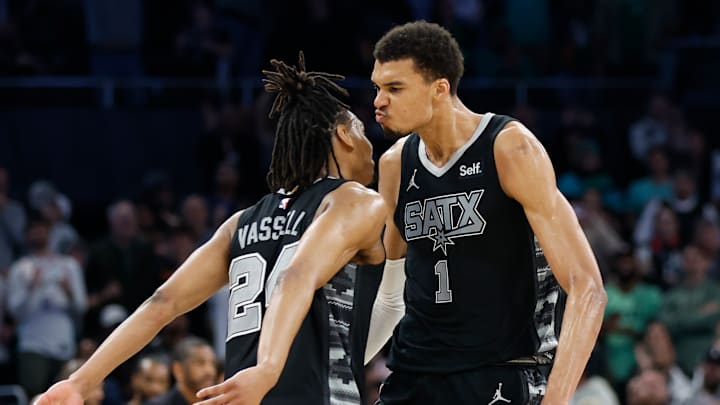Free agency is essentially over, the draft is well behind us, and there are only a few potentials left to fall before rosters are essentially settled. At this point, it's more than safe to make full judgments about the San Antonio Spurs offseason.
Some Spurs fans, myself included, weren't thrilled with every move that Brian Wright made this summer, but it's clear now that every move the Spurs made was with one goal in mind: sustained success. Not making a splash, not planning how they can make the playoffs this year, but how they can make the playoffs for the next 25 and establish another run of success to rival the Big Three.
What sets San Antonio ahead of other franchises is that while teams like the Clippers and Warriors made moves in response to the new CBA and the often-mentioned second apron, the Spurs laid a framework to navigate life under the new CBA. But even that won't stave off the reality that the Spurs and every other NBA team will have to face; keeping a team together isn't possible anymore unless you want to pay a heavy price.
Spurs preparing for eventual split from core members of current roster
Teams like the Spurs, who prefer to develop through the draft, aren't immune to the penalties of the second apron. Because even if you hit on every draft pick, perfectly develop every player in a way that maximizes their talents, and end up with a bunch of homegrown All-Stars, the bill doesn't come until it's time to pay that internally developed talent.
At its core, the second apron is a set of rules to penalize teams that are $17.5 million or more over the luxury tax threshold. Once you cross that line, a whole host of penalties kick in. Trading with other teams gets harder, signing players in free agency gets harder, and teams can even have their future draft picks made unavailable for trade or bumped to the end of the first round if they don't get out of the second level of the luxury tax.
All of that to say, life under the second apron is hell and something teams will do almost anything to avoid. That's what makes the pick swaps Brian Wright picked up this summer so valuable.
Eventually, Devin Vassell will need another extension, Victor Wembanyama will need his big payday, and the same goes for Jeremy Sochan and Stephon Castle. It's not coming for a while, but it is coming. If all of those players develop into the all-stars that San Antonio hopes they can, paying them all enough to keep them together is going to be almost impossible. To help account for that, Brian Wright and the Spurs have made a series of future bets that can help add injections of fresh talent.
These future pick swaps only have value if the Spurs finish the season in a better position than the team they're swapping with. So the Spurs are essentially betting on themselves and saying that in 2030 & 2031 they think that they'll finish the season with a better record than the Timberwolves and would therefore benefit from swapping picks with Minnesota—not a bad bet to make when you're the team that's building around a 20-year-old phenom.
At the end of the day, every front office is going to have to adjust how they build their teams in response to these new spending limits and penalties. Thankfully, the Spurs aren't in a position where they have to respond to these new rules but instead can plan for them. So those pick swaps might not seem like much now, but in a few years, they just might be the assets that help bridge the Spurs' success from a blip to a run of sustained excellence that cements San Antonio as perennial title contenders.
